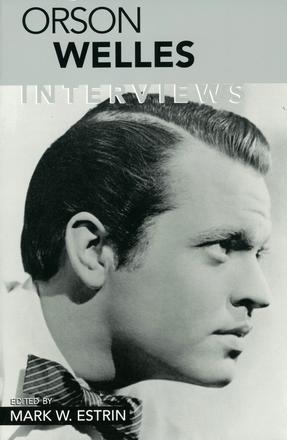
Orson Welles
Interviews
An array of interviews, profiles, and press conferences tracing the half century that this multidimensional film director and actor was in the public eye
Description
This book brings together an exceptional array of interviews, profiles, and press conferences tracing the half century that Orson Welles (1915–1985) was in the public eye. Originally published or broadcast between 1938 and 1989 in worldwide locations, these pieces confirm that Welles's career was multidimensional and thoroughly inter-woven with Welles's persona.
Several of them offer vivid testimony to his grasp on the public imagination in Welles's heyday, including accounts of his War of the Worlds broadcast. Some interviews appear in English for the first time. Two transcriptions of British television interviews have never before appeared in print. Interviewers include Kenneth Tynan, French critic André Bazin, and Gore Vidal.
The subjects center on the performing arts but also embrace philosophy, religion, history, and, especially, American society and politics. Welles confronts painful topics: the attempts to suppress Citizen Kane, RKO's mutilation of The Magnificent Ambersons, his loss of directorial authority, his regret at never having run for political office, and his financial struggles. “I would have sold my soul” to play Marlon Brando's role as Don Corleone in The Godfather, he tells a BBC interviewer.
Welles deflates the notion of the film director's omnipotence, insisting that it is only in the editing studio that he possesses "absolute control." With scholarly erudition, Welles revels in the plays of Shakespeare and discusses their adaptation to stage and screen. He assesses rival directors and eminent actors, offers penetrating analyses of Citizen Kane, Touch of Evil, Chimes at Midnight, and The Third Man, and declares that he never made a film that lacked an ethical point-of-view. These conversations reveal the majestic mind and talent of Welles from a fresh perspective.